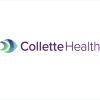Over the last few weeks, Healthcare Dive has been talking to healthcare execs across the industry about what to expect in 2015. We received a lot of answers that covered every sector of the business, from mhealth and telehealth to population health and M&A. Here are the five most interesting, prescient predictions for healthcare in 2015.
Did we miss anything? Email us at [email protected] and let us know.
1. Interoperability will be the big theme of 2015
From Lisa Khorey, Executive Director in Ernst & Young's Health Care Advisory practice:
"I expect that interoperability—the extent that health care systems and devices can share and interpret data—will re-emerge as a theme as organizations struggle to work without the necessary ability to exchange data. Absent interoperability, the health care system will fail to realize the true value of digital data in 2015. A significant push by patients to gain electronic access to their medical records could become a catalyst for change."
2. Pre- and post-clinical care will begin to impact hospital financials
From Brian Sanderson, Managing Principal of Crowe Horwath's Healthcare Services group:
"The rapid adoption of Health Insurance Exchange (HIE) products and benefit plan designs that have higher out-of-pocket requirements will increase the number and intensity of patient interactions prior to and post-clinical service. These interactions will have as much (if not greater) impact on patient satisfaction as clinical outcomes, and will drive consumer behavior regarding selection of hospital, doctor, site of care, etc. So not only will this dynamic change affect a hospital’s financials (e.g. self pay bad debt), but it will also affect market share."
3. Population health will reach a "pivot point"
From Jonathan Niloff, M.D., VP and CMO for McKesson’s analytics division:
"Population health is still in its infancy but we are starting to see a pivot point. Provider organizations have started implementing care management programs at the point-of-care, fostering a more team-based approach. This is different than the predominant payer-focused model which is remote and not integrated into real-time care. We're going to see more and more of this transition in 2015."
4. The M&A march will continue
From Margaret Utterback, Partner at Quarles & Brady:
"The changing reimbursement environment will continue to drive creative thinking about business combinations, particularly in the hospital context. More and more, we will see acquisitions or affiliations, as organizations continue to strive to reduce costs."
5. The use of technology of almost all kinds will surge
From Curt Palmer, Chief Value Steward at SMC Partners, LLC:
"Not a big surprise, but the wave of emerging mobile/digital healthcare apps and technology will surge and what used to pass for novelty will become accepted practice. Payers will be forced to address payment for providers who utilize technology in remote monitoring and telehealth. Though that has begun in some small ways, it will be higher on the priority list and become formalized across a wider number of leading payers. Along with the design and 'productization' of mobile health will be a much greater emphasis on how, for example, apps are connected to needed data and databases. The functionality and value of mobile apps in healthcare will be a direct reflection of how quickly, accurately and securely data can be accessed and rendered for a positive end-user experience… regardless of whether that's a patient, provider or payer manager."
















